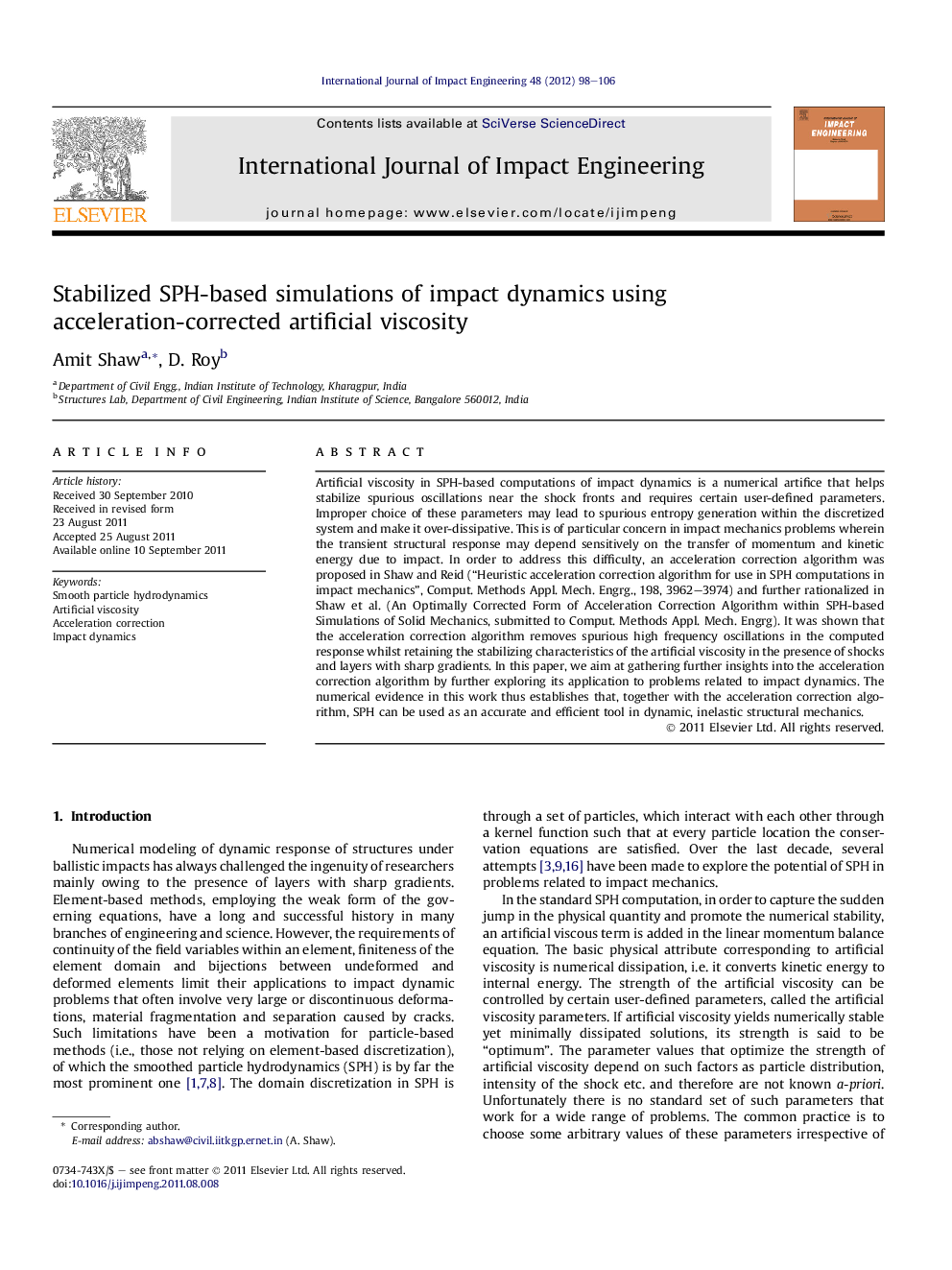| Article ID | Journal | Published Year | Pages | File Type |
|---|---|---|---|---|
| 783105 | International Journal of Impact Engineering | 2012 | 9 Pages |
Artificial viscosity in SPH-based computations of impact dynamics is a numerical artifice that helps stabilize spurious oscillations near the shock fronts and requires certain user-defined parameters. Improper choice of these parameters may lead to spurious entropy generation within the discretized system and make it over-dissipative. This is of particular concern in impact mechanics problems wherein the transient structural response may depend sensitively on the transfer of momentum and kinetic energy due to impact. In order to address this difficulty, an acceleration correction algorithm was proposed in Shaw and Reid (“Heuristic acceleration correction algorithm for use in SPH computations in impact mechanics”, Comput. Methods Appl. Mech. Engrg., 198, 3962–3974) and further rationalized in Shaw et al. (An Optimally Corrected Form of Acceleration Correction Algorithm within SPH-based Simulations of Solid Mechanics, submitted to Comput. Methods Appl. Mech. Engrg). It was shown that the acceleration correction algorithm removes spurious high frequency oscillations in the computed response whilst retaining the stabilizing characteristics of the artificial viscosity in the presence of shocks and layers with sharp gradients. In this paper, we aim at gathering further insights into the acceleration correction algorithm by further exploring its application to problems related to impact dynamics. The numerical evidence in this work thus establishes that, together with the acceleration correction algorithm, SPH can be used as an accurate and efficient tool in dynamic, inelastic structural mechanics.
► Proper treatment of artificial viscosity in SPH computation in solid mechanics. ► Numerical experiments with the acceleration correction (AC) algorithm. ► Demonstration of superior performance of the acceleration-corrected SPH. ► Extension of AC algorithm to several forms of artificial viscosity.
